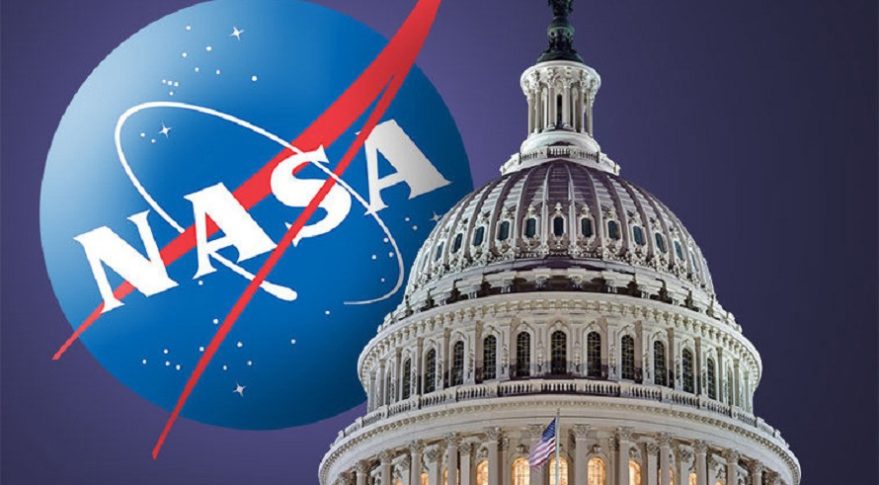
WASHINGTON — A draft Senate appropriations bill released July 28 would fund NASA at the same overall level the agency requested, but with adjustments to some science, technology and exploration programs.
Sen. Patrick Leahy (D-Vt.), chairman of the Senate Appropriations Committee, released a “chairman’s mark” version of 12 appropriations bills for fiscal year 2023, including the commerce, justice and science (CJS) bill that funds NASA. The bills are not the product of full committee negotiations but instead reflect the priorities of the Democratic leadership of the committee.
“It is my hope that by releasing these bills and making clear what the priorities of Senate Democrats are, we can take a step closer toward reaching a bipartisan compromise after months of stalled negotiations,” Leahy said in a statement.
The CJS bill includes $25.974 billion for NASA, the same overall level the agency requested in its fiscal year 2023 budget proposal. A separate bill approved by House appropriators last month would provide NASA with $25.446 billion.
While the overall amount is identical, there are differences among the various programs. Science, exploration and space operations would each get small increases, while space technology would get nearly $175 million less than requested. The space technology funding of $1.264 billion would still be higher than the $1.1 billion it received in 2022.
The report accompanying the bill includes support for NASA’s Near Earth Object (NEO) Surveyor mission, a space telescope to look for potentially hazardous asteroids. NASA sought just $40 million for the mission in 2023, far less than previously projected, and would delay its 2026 launch by at least two years in order to cover increased costs for other planetary science missions.
The Senate bill would double the requested funding for NEO Surveyor “and welcomes NASA’s commitment to a 2026 launch.” However, those familiar with the project say that the partial restoration in funding for NEO Survey proposed in the bill would not be sufficient to keep the mission on track for a 2026 launch.
The report, while providing $822.3 million for NASA’s Mars Sample Return (MSR) effort, does express concern about delay in the launch of the sample retrieval lander from 2026 to 2028. The report would require NASA to provide “a year-by-year funding profile for a planned 2028 MSR launch along with any guardrails it has put in place to ensure that MSR does not continue to grow in cost while incurring launch delays.”
Another NASA project appropriators criticize is Mobile Launcher 2, the mobile launch platform for the Block 1B version of the Space Launch System that has suffered serious cost and schedule overruns. The report cites an audit by NASA’s Office of Inspector General that gave the project just a 3.9% chance of achieving its $1 billion budget and October 2023 delivery date. “This is a stunningly low confidence level,” the report states.
While the bill would provide nearly $50 million in additional funding for the project, it suggests that NASA will have to look elsewhere in the agency to cover some of the projects’ overruns. However, the report “cautions NASA against proposing reductions in Congressional priorities” to do so.
In space operations, the report calls on NASA to certify another commercial crew provider in addition to Boeing and SpaceX, offering $50 million for that work. “Previous experience with Commercial Cargo where NASA was required to use an alternative launch vehicle when both providers were unable to provide services suggests that maintaining crew launch redundancy may require more than two service providers,” appropriators state. It’s unclear how NASA would approach that work, although Sierra Space has discussed making a crewed version of its Dream Chaser vehicle.
The bill would fully fund NASA’s Commercial Low Earth Orbit Destinations program to stimulate development of commercial space stations to succeed the International Space Station. Appropriators, though, said the funding should focus “on solving supply rather than demand problems” and prevents NASA from spending any money “to subsidize the cost of any project that is primarily intended for marketing, advertising, or entertainment.”
The draft bills, crafted without Republican input, were criticized by the committee’s ranking member, Sen. Richard Shelby (R-Ala.) He did not raise specific issues with the NASA funding in the draft bill, but warned that the process could result in a full-year continuing resolution (CR) that would hold funding at 2022 levels.
“Today’s effort shows we have a long way to go,” he said. “Democrats need to get serious or, regrettably, I believe we will end up with a long-term CR.”
